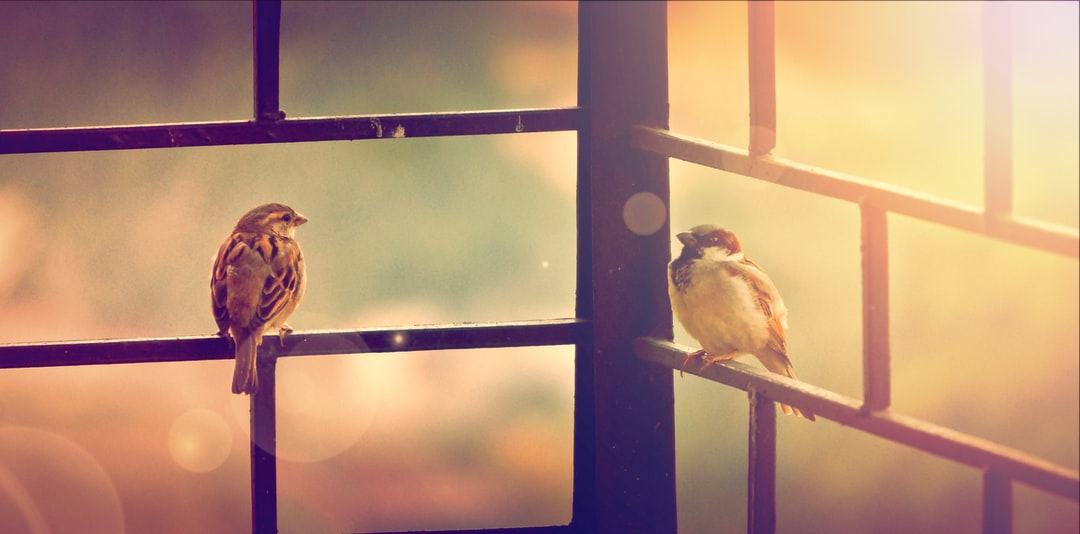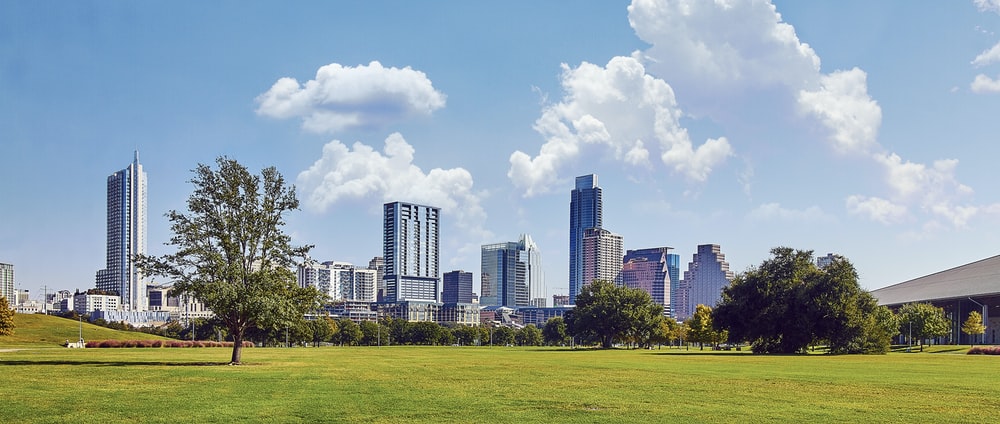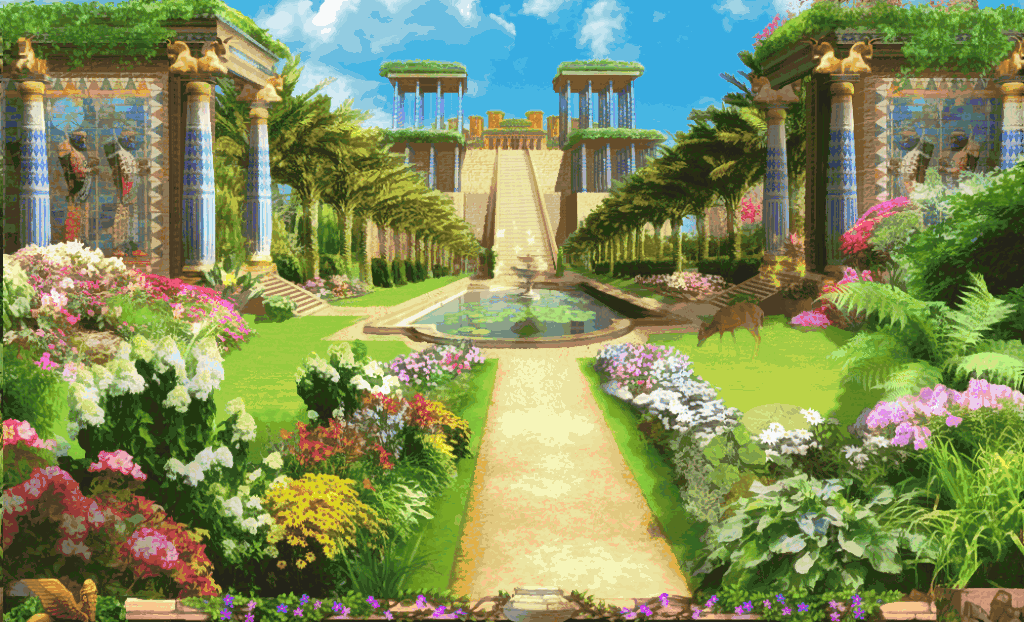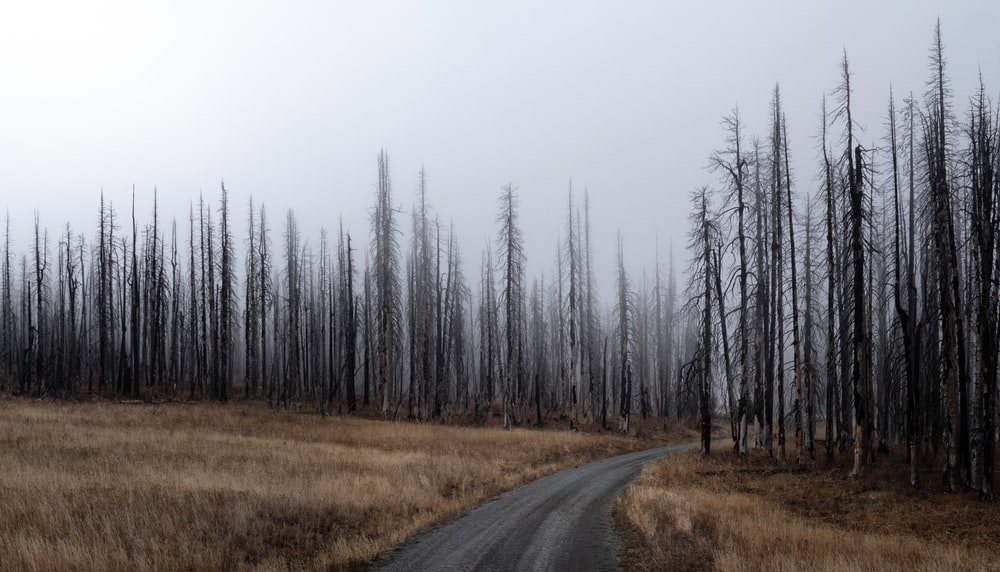
Happiness as a Choice
February 9, 2021 - Reading time: 2 minutes
My father always told us that happiness was a choice. Angry is also a choice and it is often the easier of the two emotions to listen to. But could a complex emotional state be so easy to understand? While I do given him credit, it has helped me a lot in my lifetime, especially with dispute resolution, yet it couldn't be that simple? Could it?
Happiness is an emotion that occurs in a living being when they believe they have reached a desired goal.
Some psychologists have tried to characterize the degree of happiness through various tests, and have come to define happiness as a subjective (self-perceived) measure of well-being that influences the attitudes and behavior of individuals. People who have a high degree of happiness generally show a positive environment approach, while being motivated to achieve new goals. Unlike people who don't feel any degree of happiness that show a negative approach, feeling frustrated with the development of their lives.
That's why they say that one of the secrets to being happy is to give yourself and serve others without expecting to be thanked. In this regard, I am sure that we can learn much more from disabled people, poor, those who work to overcome problems, like the ones we have seen over the last year. Because problems teach us more than the perfect explanations of eminent scientists or educators invested in their analyses. People who have successfully overcome adversion have bee about to teach us through their growth, acceptance or just seeing them with a smile on their face; wounded people have taught us that we must accept our weaknesses and not always pretend to be strong and capable because that is where we create barriers to being happy. We always have to fight for our happiness.

My brilliant plan 2021
December 29, 2020 - Reading time: 4 minutes
Welcome 2021! How quickly you've come this year.
A new year lays ahead, and as my father's oft grumbled phrase of the week (leading up to the 31st), "New Year, new fight", which I once thought meant that it is a good time to reflect on all that we have not yet been able to get done, everything we have to improve, and that requires an internal struggle to be able to change and correct.
This is a goal, a mission that we plan each year. Those New Years resolutions which most everyone makes, either officially or unofficially give us something to work toward.
A mission defines what you do and the reason that you do it in the long run. In our case the long term can be none other than life (a life's work), so our mission is work the smartest way one can. My goals, that is, what I need to do to accomplish my list are based on four points basic points:
- Improving my relationship with my faith
- Being an excellent fiancée
- Being an excellent employee
- Be an excellent friend, daughter and sister
At first it looks like the list is arbitrary, disconnected and small, but it is quite encompassing if you look at where my values lie.

Taking into account these four simple objectives I have defined one-off activities to improve in each of them, as well as giving them a date to meet them and above all a monthly review or control to ensure that I have really complied with the established criteria, since good intentions die when they are not nurtured and observed.
For example, in the case of being an excellent employee, I set out to cultivate values such as perseverance, prudence, ethics in business, punctuality, finishing everything well, etc. And for this a concrete action plan that is based on knowing these virtues is required.
In the case of my relationship with my boyfriend, who will help me identify what I am doing wrong, as is the communication with him, are you happy to be with me? I can make a list of topics where I must improve, for example, share more of the work at home, not arrive home stressed, or bring work problems in to the house, etc.
These are the most important aspects of my life at this time. And as my grandmother would say: "How brief is the length of our passage through the earth!" These words have made me reflect as a reproach in the face of a lack of dedication, of desire, that I have many times in the past, they have given me pause to improve on things that I know that I am doing wrong, but at the same time they are a constant invitation to change, and that better than the beginning of a new year to do so.
Here the important thing is to realize that you can improve, where to improve, and most importantly how to improve. Not only must we have the desire to initiate this change, because if so after a week we forgot everything, we must act. The secret is to do it just like at work, put the same emphasis and even greater, because this is much more important (this is our personal life). Let's think about our lives. Why don't we sometimes find those minutes, to end the work that concerns us? Why do we neglect family obligations, why do we lack serenity and calm, to fulfill day-to-day duties, and entertain ourselves without any hurry to go after personal whims?
I read in an article that if we renew our goals that it allows us to concentrate and give us a goal. Physical lacking, was one of the factors that led people to ignore their resolutions. How can we fix that? Add one more thing to our ever growing list. Exercise daily, for our bodies must be fit for our mind to work well. Then make sure you put your heart into reaching those goals. Sometimes happiness is not always in doing what you want, but in wanting what you do. And finally read or watch movies that inspire you.
Thank you for spending some of your time here to read my plans for the coming year, I promise to be more rigorous and improve a lot in the next year.

The Life After
November 27, 2020 - Reading time: 6 minutes
What if the afterlife exists?
Yesterday I was supposed to attend a concert, of course that wasn't possible. But had we went we would have been at a concert which was to host 15,000 people. When we first learned that it was going to be canceled we were a little unhappy. You see the tickets had been a birthday gift from my fiancée. We had been looking forward to attending for some time and it would have been a memorable outing which was special to both of us. You see, the song playing when he proposed to me was from the artist we were going to see. It is our sort of our song. But that is not the point of the entry today.
After we realized that the concert wasn't going to happen I was a little put off which quickly dissipated. After all with the current crisis it was the most sensible thing to do. It was at some point afterwards that I began to think about the concert from a different perspective. Had it actually happened it would have resulted in the death of an uncertain number of people, it led me to think about my next article on this site. I had not written anything about the topic but it has been in my thoughts since I was a child.
Death.

It is such a tragic topic but it is the only sure thing in this life. The first thing to become clear to me in my childhood was the need to always be prepared. Much of what we consider detrimental can be avoided when we ensure a certain amount of preparedness and commonsense.
Many people add another guideline to navigate the world we inhabit. Religion. The afterlife is either a reward or a punishment given that it can either be eternal happiness or punishment. This encourages us to think sensibly about our actions and prepares a framework for life. The afterlife, for many, is a given.
Now, with that foundation in mind let us pretend that the life we expect after death does not exist. That is to say that, the fundamental truth of the Christian faith, the existence of the afterlife, is nonexistent. Nonsense I agree. But for the sake of argument let's pretend, but just for a minute. What would happen? What would this do to our attitudes?
When this is the guideline for the reasonable person, the one that promises us eternal rewards or punishment — based on our actions, how does it affect the way we would act?
How would we react to the temptations and challenges that make up the human existence?
Would our interests change?
Let's look at this from another perspective.
There are countless insurance companies out there to offer us unlimited ways to ensure we are safe when we engage in an endless assortment of unsafe things, especially when it comes to things worth securing. Health, home, life, and everything in-between they are there to ensure your life on earth is worry free. Up until this point we have been able to rely on our faith to insure us after all of those things are not needed. The person who lives in an apartment house does not have to worry about securing it, but the one who owns their home in which they have invested their resources, does. For them it is worth it to secure it against a possible fire, because for them, a fire could represent an irreparable catastrophe. Now, when you insure against fire, are you convinced that the fire will happen? I think most people are pretty certain that their home will not burn down. If they weren't their entire existence would be consumed about worrying about the prospect of a fire. We are pretty sure it won't happen because it's not likely to happen (thankfully). It's just, possible, nothing more. And because we have a lot to lose, we insure it against loss.
Can the same sentiment be placed on a less tangible asset.
Let us move this from the purely human order of business, to the things that pertain to our soul. Most people believe in the existence of a life after death. Yet, this has provided philosophers and thinkers with a tremendous problem. How can you prove/disprove our eternal destinies, and more importantly bring out the consequence our lives have on that? As Christians we believe this as an absolute, with concrete assurance from the church, that we have something waiting for us on the other side, even if it was unlikely, but merely possible that an existence waited for us beyond the most elementary prudence should lead us to take all kinds of precautions to ensure the salvation of our souls. Just as we ensure that in the event of any assortment of catastrophe take place, we are insured against ruin. Because, if we were work, and there was indeed a hell and we were condemned for all eternity, we would have lost absolutely everything forever.
Is their an afterlife?

The argument, if it turns out that there is a hell, for those who do not think of the afterlife, those who enjoy life to the fullest and concentrate on fun, wallowing in all kinds of earthly pleasures, or those who are simply "good people, who do no harm to anyone," who also do little to improve themselves and life for those around them. Those of us who are convinced that there is an eternity, those of us who live a Christian life cannot be lead to eternal failure. Even assuming that there is no beyond after this poor life, what we will it have cost us living honestly?
As you can see, at the time of death you put everything at stake, playing everything on a card, considering what is at risk it is a stakes game. Sometimes change once we are old, we know that the end comes to us all sooner or later, and what is the harm? We have had all of our fun. But we run the risk of being too late.
What if we go sooner?
What happens if we lose?

Snow Falling - Falling - Fell
November 21, 2020 - Reading time: ~1 minute
This weekend we were finally able to see the snow which we have been waiting sort of patiently on. And you have to know that it's not an easy thing for me to wait for winter (I'm a cold weather person). Fall is a nice start, especially when the leaves start to change. Then we have that whole period where they have fallen and it a little bit gray and dingy, thus the reason I get antsy for winter.
A couple of weeks ago, when a cold front was pushing through I thought for certain we we get some (even a little is better than none), I saw it snow flakes flying everywhere (in my thoughts at least), but we didn't see a flake.
In any case when I heard that we would be getting a second wave of polar air we were sure to get to see some decent snowfall right here in the valley, I am so happy. We decided to go on a Sunday walk in the park to see all white. Hopefully it won't be packed to ice, because after all of this snowfall it is supposed to be a clear night and we're sure to get a good frost. It will still be nice, but we'll just have to be very careful not to slip.

It's So Crazy It Might Just Work
November 5, 2020 - Reading time: 6 minutes
I am engaged, many of you know that since I have written about it here a number of times already. But what many of you may not know is that I not only want to get married, I want a working marriage after that point forward when we exchange vows. Most of us do. This has made me interested in the topic of working marriages and what needs to function properly for them to work.
So today I return again to the subject of marriage, since the good weather we've been having was nothing worth writing about and I think it is time to make good marriages "fashionable." After all the marriage models that are sold to us in the news are the celebrity sort, the ones that end in broken marriages or divorces. We see these all the time but have you started thinking about how many marriages are successful? For more than those that fail. If we exclude the Hollywood sort at least. Why is that? They are successful because they are based on effort, since nothing is easy in this life, especially when it is worthwhile.
The last time I asked a friend "What do you do if your company starts selling less?" This is a straightforward question, and one that when targeted toward a business orientated person will be answered likewise. He was quick to answer, he could do many things, create promotions, save costs, hire qualified staff, change strategy, etc. Then I asked him: "would you think about closing your company?" To which he answered: "are you crazy?" In his words he would attempt the impossible before that would happen.
His company means a lot to him as you can tell.
Why don't we act like that when it comes to marriage? Many couples at first disagree or engage in the fights that exist in every marriage, but some think of throwing in the towel without first risking the fighting and learning (hint you don't have to fight in the first place). In this regard, John of the Cross said more than a millennium ago:
"In search of my Love
I will go over mountains and strands;
I will gather no flowers,
I will fear no wild beasts;
And pass by the mighty and the frontiers." There appears to be a monopoly on stories of heartbreak which causes some of us to distrust of marriage. I saw a survey once where several hundred married couples from different countries, with a minimum of ten years of marital life, were asked if they considered their union a happy one, even if some misunderstandings and conflicts that they considered normal were present in their lives. The result was that people were happy together, and they had a number of things in common that allowed them to live happily together. We need to understand that happiness is not incompatible with conflicts and crises that can be considered normal.

Happiness isn't a given, it takes work and time to adjust and refine the loving relationship in the face of successive changes that, over time, occur in conjugal and family life. It helps to remember that getting married is for life and once that is clear that marriage is forever and there will be hurtles to overcome. Understanding this from the beginning allows you to face them together by putting forth the means required to overcome them.
I am aware that love is not a fact fulfilled at the time of the wedding: it is something that is built every day, it is a permanent development and flux. You have to restart it sometime, renew your love every morning, avoid "getting used" to living with each other and falling into simple routine. True love knows how to invent, it knows how to renew itself with creativity. This requires you to use resources to keep the relationship in good condition and prevent possible conflicts: speak openly and in time, acknowledge mistakes, know how to apologize, know how to give up on senseless disputes, reach agreements, offer acts of relief, etc. This is humble, not self-sufficient love, which is shaped and nurtured, one which knows how to learn.
For those blessed with the memory of good parents who really loved each other you have the tools to shape your marriage to be a loving one as well.
An intimate relationship: with kind personal treatment, dialog, sincerity, knowledge and mutual respect; oriented to a possible marriage allow us to see our spouse as the first priority in one's life; give you preferential attention about other people and interests. We can phrase it like this: Be happy as an effect of making the other spouse happy; live to make the two of you happy happy.
Share experiences, problems, moods. Take an interest in each other's important things. Knowing how to enter their world and giving them the means to enter yours. Count on each other when making decisions.
Be friends besides spouses.
Openly express your feelings and overcome possible false modesty and fear of trusting the other spouse completely.
Admire the other and show them that they are admired.
Accept and love the other as they are without pretending to change or adapt to one's own way of being. Living together as people allows you to love each other: sincerity, trust, understanding, respect, good manners, delicacy in treatment, knowing silence, knowing how to listen, not always saying the last word.
Find a time each day to be alone and talk. Enjoy the intimate company with your spouse. Talk about everything and have a good time together. Create pleasant situations that are meaningful and allow you to make good memories.
Take care of the small details every day that make life more pleasant for your relationship.
Resolve conflicts in the day they happen instead of sleeping on them; take the first step to talk; to know how to acknowledge mistakes, ask forgiveness, and forgive.
When clashes arise think of the good memories and resort to good humor, which helps put the situation in perspective and frame the problems clearly allowing you to see reality from a more favorable side.

Can We Sustain Society Without Destroying Nature?
September 23, 2020 - Reading time: 4 minutes
"Our material eye cannot see that a stupid chauvinism is driving us from one noisy, destructive, futile agitation to another." Anne Sullivan
Necessity breeds innovation and there is a lot of necessity for sustainable food production, though the innovation has already in part been laid out before us.
Hagging gardens are nothing new. But they do provide us with solutions to modern problems.
Vertical Gardens
Hydroponic vertical gardens or crop walls are vertically planted gardens on a wall, using two sheets of fiberglass, with a coconut fiber substrate to root the plants. It is very similar to hydroponic gardens, where fertilizers are added to plants by means of nutrient-rich substances.
To make a vertical garden, you need to have a metal structure, preferably, that can be purchased in the garden shops, or made with a few cables and a little creativity. This metal structure hangs on the wall in a way that does not be completely attached to it, but must have a little separation to avoid excess moisture and for some oxygen to enter.
Two PVC or fiberglass plates can be used to design the vertical garden, cut to the desired size. Between the two plates is placed a layer of felt, where the plants and coconut fiber will be rooted. Basically, it works as a hydroponic garden, with drip irrigation with nutritious substances, and in a soilless environment.
In a vertical garden you can plant all kinds of ornamental plants and flowers, as well as plants such as aubergines, strawberries, melons, beans, among others.
Another way to make vertical gardens is by means of a crossed vertical armor made of wood, in the form of a rectangle, where vine plants that grow vertically, centered in a single space, are planted.

The Basic Hydroponic Gardens
The idea is simple. And it is simple to achieve. The resources are basic and readily available. There is nothing stopping us. Save space constrains for some, and the motivation for others.
The idea of a hydroponic garden seems daunting, though they are simple and facilitate the growth of plants using a mineral solution instead of soil. The mineral solution usually contains water and certain nutrients that are needed for the plant. With basic tools we can grow vegetables in our hydroponic garden and without any maintenance required.
The first thing we need is a support for PVC pipes, this support will be necessary to make some holes where the pots will be inserted where we will subsequently place the seeds of the plants that we want to grow. The nutrients needed for plants are introduced directly into the water.
Gone are the need for garden beds, dirt, and large amounts of space.
Some Reasons to Consider Them
- This type of garden is known for being small and easy to grow indoors, they are also perfect for growing vegetables, especially tomatoes. As if that were not enough, the equipment required to maintain such a garden is not expensive and is relatively easy to handle.
- Hydroponic gardens are those that grow plants without a soil, in other words they are "landless gardens."
- There are many methods for making a hydroponic garden, most work better than traditional gardens, because it's easier to give the plant exactly what it needs when it needs it.
- In these gardens, plants only receive what one gives him, that's why you'll be able to regulate pH, nutrients, the strength of nutrients, the amount of water and the amount of light plants receive (and you won't have to worry about the winter cold).
- All of this makes it necessary for you to learn everything you can about the plant who is trying to grow, so that you know what to give them to grow and thrive.

The Future: Gray or Green – You Decide
September 18, 2020 - Reading time: 5 minutes
Plants are essential for life on this planet but is their importance apparent? Sure plants surround us but are we able to see the forest through the trees? Have we lost touch with their role in our lives? There is a lot of "green talk" that some people in our society feel has become tedious, the "noise" gets blocked out and they look for other answers, "alternative answers" that align with their world view. One that might be drastically at odds with the facts. As it stands our future can go one of two ways: Toward a greener brighter future or a gray world where life as we know it will be changed forever.
Change doesn't need to be as dramatic as most are lead to believe. Yet, the COVID-19 lock downs that we have experienced are what many people fear a greener tomorrow will look like, that is not the case. Their is valuable information that can be gleamed from the pandemic that shows change in the way we live can have a dramatic effect on the health of the planet. Plant and wildlife both have been able to rebound in this time. That is, to say that a lot has changed in a short period with drastic changes, the same could be achieved if we implement smaller changes over a longer timespan. With the willingness to make small changes over a longer time we can make real improvements without impacting "life as we know it" in a less than dramatic way.
Covid-19 has upended almost every aspect of societies around the world in just a few weeks. “Climate change is much slower acting, but ultimately could be at least as disruptive,” said Michael Gerrard. ~ "What Can We Learn From COVID-19 to Help With Climate Change?" by Renee Cho on March 26, 2020"
What we are getting a small sample of what a future with climate change will look like. Though the shortages will not be as humorous as lack of toilette paper. We won't be able to expect the supply at out local grocery to normalize after the initial panic is over. Because the shortage will go beyond those in our society determined to stock up at the expense of others. Those short term shortages will be longterm.
It doesn't have to be though. The coronavirus pandemic has shown us that if we work as a whole things can be reversed.
Research by scientists at Columbia’s Lamont-Doherty Earth Observatory has shown that coronavirus-related shut downs are causing air pollution and carbon emissions to plummet in New York. Similar trends are being observed in other cities. It is likely these effects will be short-lived, however. ~ "What Can We Learn From COVID-19 to Help With Climate Change?" by Renee Cho on March 26, 2020
Researchers in New York told the BBC their early results showed carbon monoxide mainly from cars had been reduced by nearly 50% compared with last year. ~ "Coronavirus: Air pollution and CO2 fall rapidly as virus spreads" by Matt McGrath

Here are some of the lessons we can take away:
- Lowering air travel lowers the output of greenhouse gas;
- Digital communication which has been embraced more now than ever before may be a possible solution to reduce certain forms of air travel
- Science has been under attack for some time now and it is through misunderstanding that people use to entrench themselves in their beliefs.
- Learning to understand and heed the warning that we are given is a key to improving our response to the tasks at hand. Many people assume that science is based on hard facts. That it is faulty when new information and techniques allow us to further refine our understanding and partially disprove past beliefs.
- That global cooperation is not only helpful it is required if we want to make any real headway. Pulling on the same rope only works when we all pull in the same direction.
A lot has happened this year. We have been able to gain a lot of new knowledge and see the benefits of both active CO2 reduction and the impact that a worldwide crisis would have on our lives.
We have the tools, are we willing to use them?


There Is No Life Without Suffering
August 24, 2020 - Reading time: 2 minutes
I think that we can all agree on that, if not, I would like to know your secret.
There are days when we are in a very good mood, and others when we are sad or depressed. The former is not worth talking about because we all know very well what to do. The theme is how do we get there, the answers are diverse: illness, professional failures, unjust offenses, difficulties in social or family life? How do we react to the unpleasantness, even though, without seeking it, it appears in our lives? Are we trying to focus on it? My father, an eloquent man, had a favorite expression "sh*t happens."

It is not a question of being insensitive to pain, physical or moral; or to hide like the ostrich who chooses to abstract himself from reality by hiding his head in the sand (which is actually a myth). What is not known is that when I over come it the reality might well be exactly the same. That's why it's about dealing with the problem. Facing the hardship, instead of trying to flee at all costs; even more so if the cause of these contradictions lies in a mistake of ours there is never a chance of escape. Everyone makes mistakes, it is how we deal with them and over come our fear of consequences that allow us to prevail.
It is therefore essential that we walk with fortitude, with determination, without concessions in the face of difficulties. It demands firm, concrete steps as the general purposes. Just as the problems come as a result of a passing illusion, they leave.
One of the best pieces of advice I received in one such case was one filled with problems, it was one of those sad days where you just hope to fine someone promoting happiness around us, at our work, in our home. These are the people helping spread joy to those who may need it without having to as, this is a type of social work that we can do, and you'll see how "by magic" those negative feelings begin to disappear.
Life is not complete with out some form of unhappiness, but the happy moments tend to outweigh the sad. The latter just has a tendency to take center stage in our lives.
